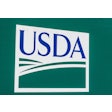The Meat Institute has called for the removal of non-tariff trade barriers and increased market access for U.S. meat and poultry products. This statement was made in response to the U.S. Trade Representative (USTR) Jamieson Greer’s request for comments on unfair trade practices. The institute emphasized its support for the Trump Administration’s efforts to advance U.S. leadership in global trade, highlighting the positive economic impacts on U.S. farm communities and workers. The Meat Institute advocated for policies that open markets and reduce trade barriers, which would benefit small and medium-sized U.S. meat and poultry businesses.
Key concerns highlighted in the comments include:
- China’s failure to fulfill commitments in the U.S.-China Phase One Agreement
- Retaliatory tariffs from China on U.S. meat exports
- Ongoing regulations hindering U.S. beef and pork exports to Taiwan
- Trade barriers limiting access to Southeast Asian markets
- Restrictions on U.S. beef exports under the U.S.-Korea Free Trade Agreement (KORUS)
- Policies from the European Union and the UK that restrict meat exports
- Increased registration requirements that could undermine access to global markets like Hong Kong
The U.S. meat and poultry industry is a significant part of the economy, contributing $227.9 billion and employing over 532,000 workers. In 2021, it produced over 27 billion pounds of beef, pork and poultry, and its exports contributed more than $44 billion in additional export activity.
The Meat Institute is committed to advocating for policies that support the U.S. meat and poultry industry's growth and market access.
















